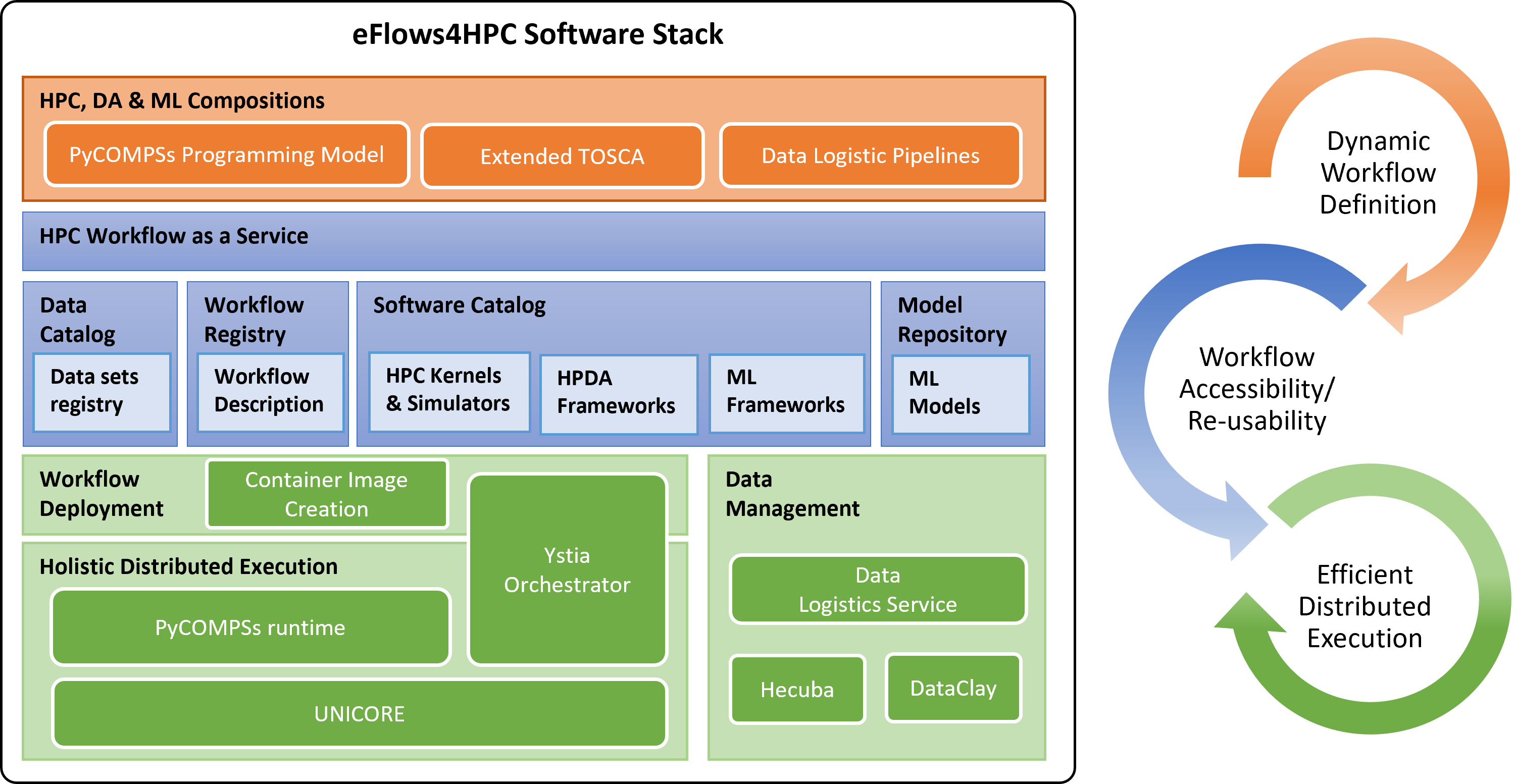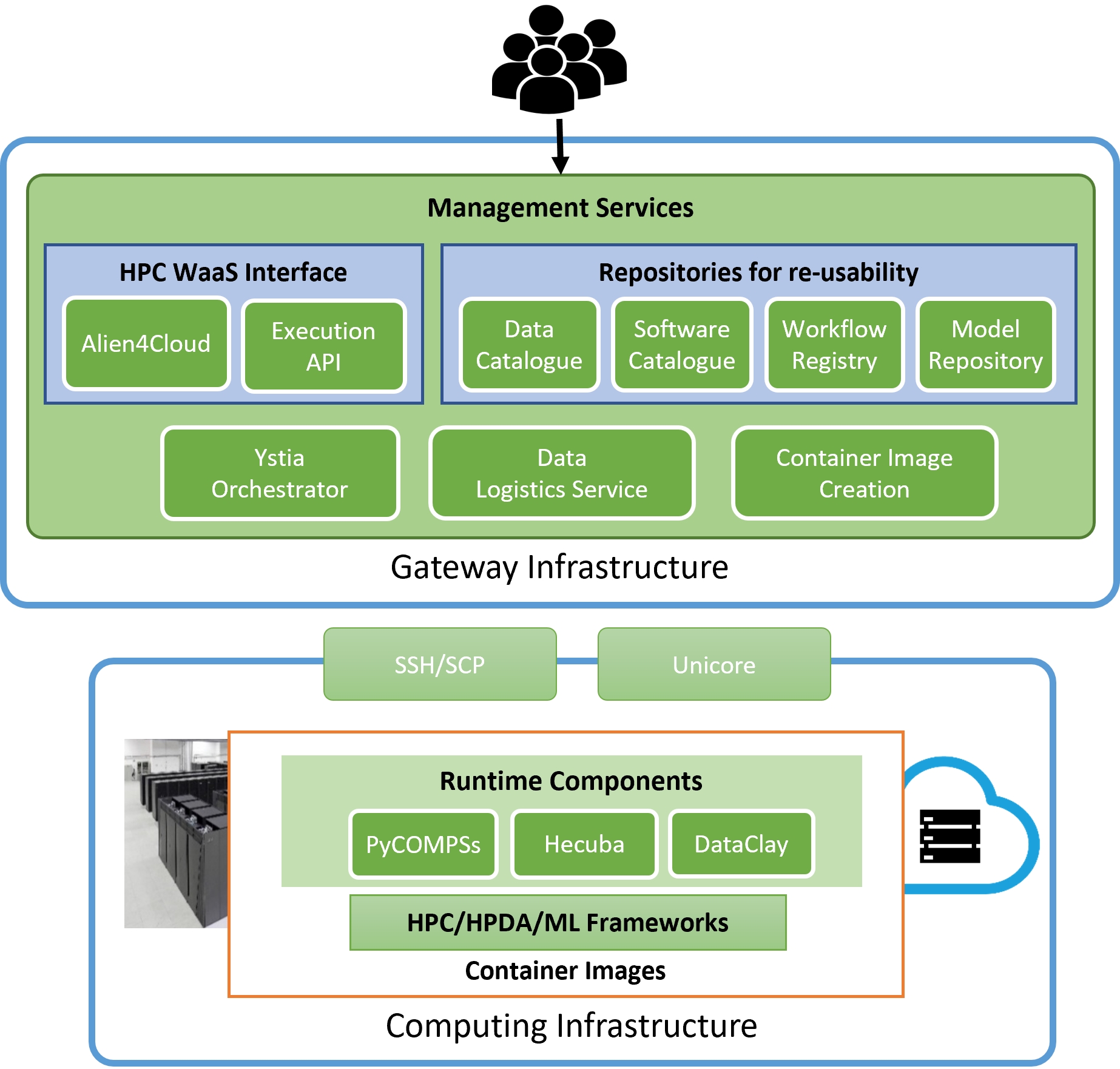Software Stack
The eFlows4HPC software stack integrates different components to provide an overall workflow management system. Figure 1 shows the components included in the eFlows4HPC Software Stack according to their functionality. On the top, we can find the programming models used for the definition of the complex workflows that combine HPC, HPDA and ML frameworks and the integration of large volumes of data from different sources and locations. Below this part, we can find the components to facilitate the accessibility and re-usability of workflows. Finally, in the bottom part of the stack, we can see the different components for deployment, execution and data management. Components in gray refer to components to be developed or integrated in the stack in the future releases.

Figure 1 Software Stack release overview.
The different components of the stack can be also are grouped according to their deployment and usage as depicted in Figure 2. The Gateway Services are the components which are deployed outside the computing interface which are used to provide the HPC Workflow as a Service capabilities (Alien4Cloud and Execution API), orchestrate the deployment, execution and data movement of the overall workflow (Ystia Orchestrator and Data Logistics Service). These services can use two services to interact with HPC clusters the SSH/SCP protocols or the Unicore midelware services. The Runtime components are deployed in the computing infrastructure to perform the parallel execution and data management of the workflow inside the assigned computing nodes. Finally, the HPDA/ML Frameworks are the software components which are used inside the workflows to implement the Machine Learning and Data Analytic algorithms.

Figure 2 Deployment view of the different Software Stack components.
Next sections provide an overview of the software stack components as well as the links to the open source repositories, installation and usage guides.
Software Stack Components